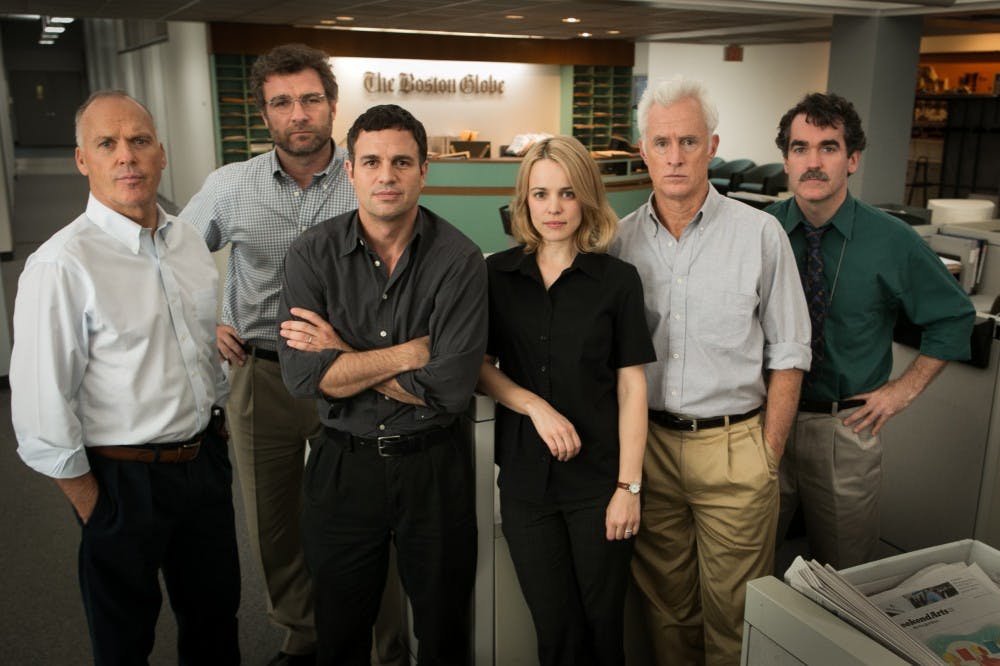Perhaps the only Best Picture to ever be directed by a man who also directed an Adam Sandler comedy, Tom McCarthy’s “Spotlight” is a work of purely triumphant filmmaking. It’s also beautifully subdued, and its willingness to adhere to facts without overt sensationalizing is vital to its identity as a movie about journalism.
It follows in the traditions of cinematic titans like the Oscar-winning “All the President’s Men” and the Oscar-nominated “The Insider,” dramatizing a true story that’s about a powerful moment in the history of journalism, but thematically about the power of truth and morality.
Based on a true story as much as on the literal idea of truth, “Spotlight” chronicles the exposé of sexual abuse within the Roman Catholic Church by a team of investigative reporters for the Boston Globe.
McCarthy’s film was released in 2015, a full 12 years after the Globe published the nearly 600 stories that resulted from its investigations. It also predated the #MeToo movement, but despite its temporal distance from both occurrences, “Spotlight” is a triumphant film because it distills its story to something timeless, rendering a compelling narrative out of a sprawling investigation. It also says something that’s as relevant in 2018 and the Trump era as it was in 2015 when the film released, or in 2001 when the Globe’s investigation began.
This is a movie about the power of truth, its capacity to bring about social change and the dedication and earnestness of its purveyors.
What’s so striking about “Spotlight” is that it’s a movie comprised of long scenes of people talking in various settings. It’s fundamentally not compelling as a work of cinema because there’s nothing inherently powerful or spectacular about the sight of two people conversing. But by the grace of McCarthy’s direction and cinematographer Masanobu Takayanagi’s impeccable photography, it becomes an engrossing work of storytelling.
Takayanagi and McCarthy’s camera rarely leaves the space occupied by a given conversation, drifting about between the two speakers to cement the audience’s perspective within the interaction. It’s a clever visual trick, and one that emphasizes the story’s innate empathetic qualities.
“Spotlight” is a movie about searching for the truth no matter the cost or the source, and McCarthy’s willingness to emphasize the victims of abuse as voices of truth is powerful and effective.
Furthermore, that willingness to treat conversations and interviews as significant — and the film’s success in persuading the audience of the magnitude of their importance — lends “Spotlight” an assuredness as it eschews filmmaking’s tendencies to “Hollywoodize” or overdramatize. McCarthy is an intelligent enough filmmaker to understand that any amount of sensationalizing this story would be a complete betrayal of its core values, and in the care he takes to avoid that, there is an inherent sense of reverence.
Rarely has the work of journalists felt as splendidly powerful as in “Spotlight,” a film where the most utterly transient and powerful image is of newly printed papers flowing from the press in a raging river of truth. Certainly not since “The Insider” has a director exhibited such reverence for journalists, and even later films like Spielberg’s “The Post” have failed to capture the engrossing power of “Spotlight.”
What matters in “Spotlight,” like in journalism itself, is truth. And, no matter the circumstances, that will never change.




